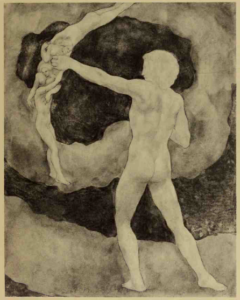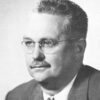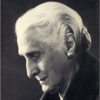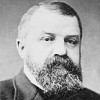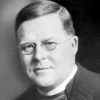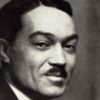Even when freshly washed and relieved of all obvious confections, children tend to be sticky.
Fran Lebowitz (b. 1950) American journalist
“Children: Pro or Con,” Metropolitan Life (1978)
(Source)
Quotations about:
children
Note not all quotations have been tagged, so Search may find additional quotes on this topic.
Children have an uncanny way of living up — or down — to what is expected of them.
Ann Landers (1918-2002) American advice columnist [pseud. for Eppie Lederer]
“Parenthood: What Do You Owe Your Children?” Family Circle (1977-11)
(Source)
Collected in The Ann Landers Encyclopedia (1978).
Children live in occupied territory. The brave and the foolhardy openly rebel against authority, whether harsh or benign. But most tread warily, outwardly accommodating themselves to alien mores and edicts while living in secret their iconoclastic and subversive lives.
P. D. James (1920-2014) British mystery writer [Phyllis Dorothy James White]
Time To Be in Earnest: A Fragment of Autobiography, “Diary 1997” (1999)
(Source)
You are the bows from which your children as living arrows are sent forth.
The Archer sees the mark upon the path of the infinite, and He bends you with His might that His arrows may go swift and far.
Let your bending in the Archer’s hand be for gladness;
For even as He loves the arrow that flies, so He loves also the bow that is stable.Kahlil Gibran (1883-1931) Lebanese-American poet, writer, painter [Gibran Khalil Gibran]
“On Children,” The Prophet (1923)
(Source)
Anyone who has raised more than one child knows full well that kids turn out the way they turn out — astonishingly, for the most part, and usually quite unlike their siblings, even their twins, raised under the same flawed rooftree.
Children hold us hostage; they represent our commitment to the future.
Barbara Grizzuti Harrison (1934-2002) American journalist, essayist, memoirist
Italian Days, ch. 1 (1989)
(Source)
Graft your pears, Daphnis, now; your children’s children will enjoy the fruit.
[Insere, Daphni, piros: carpent tua poma nepotes.]
Virgil (70-19 BC) Roman poet [b. Publius Vergilius Maro; also Vergil]
Eclogues [Eclogae, Bucolics, Pastorals], No. 9 “Lycidas and Moeris,” l. 50 (9.50) (42-38 BC) [tr. Rieu (1949)]
(Source)
(Source (Latin)). Alternate translations:
Daphnis set pears, thy race shall fruit injoy.
[tr. Ogilby (1649)]
Under this influence, graft the tender Shoot;
Thy Childrens Children shall enjoy the Fruit.
[tr. Dryden (1709), ll. 68-69]
Plant, Daphnis, for the rising race thy pears.
[tr. Wrangham (1830), l. 59]
Daphnis, plant thy pear-trees. Posterity shall pluck the fruit of thy plantations.
[tr. Davidson (1854)]
Sow, Daphnis, pears, whereof thy sons shall eat.
[tr. Calverley (c. 1871)]
Engraft your peartrees, Daphnis; your children's children shall enjoy their fruits.
[tr. Wilkins (1873)]
Graft, Daphnis, graft thy trees, nor fear
Thy sons shall all the produce share.
[tr. King (1882), ll. 897-898]
You may graft new rows
Of pears; your progeny will shake the boughs.
[tr. Palmer (1883)]
Now, the pears;
so shall your children's children pluck their fruit.
[tr. Greenough (1895)]
Daphnis, plant your pear-trees. Posterity will pluck the fruit due to your care.
[tr. Bryce (1897)]
Engraft thy pear-trees, Daphnis; thy children's children shall pluck their fruit.
[tr. Mackail (1899)]
Now, Daphnis, graft
Thy pear trees, that thy children's children may
Eat of their fruit.
[tr. Mackail/Cardew (1908)]
Go, Daphnis, graft thy pears!
Sons of thy sons shall gather them in joy.
[tr. Williams (1915)]
Graft you pears, Daphnis; your children’s children shall gather the fruits you have sown.
[tr. Fairclough (Loeb) (1916)]
Daphnis, engraft thy pears, for thee, thy sons,
And their seed after them.
[tr. Royds (1922)]
Daphnis, graft you pears; your children's children
Shall pluck them in peace.
[tr. Johnson (1960)]
Daphnis, graft your pears now: your sons’ sons will enjoy them.
[tr. Day Lewis (1963)]
Daphnis, plant your pear trees ... years from now
The children of your children will gather the pears ...
[tr. Ferry (1999)]
Graft
your pears, Daphnis: your grandchildren will gather their fruit.
[tr. Kline (2001)]
Earthly riches can neither bless us nor our children with happiness; we must either lose them in this life or leave them to be enjoyed after our death by one, we cannot tell whom, perhaps by those we would not should have them.
[Felices enim uel nos uel filios nostros non diuitiae terrenae faciunt aut nobis uiuentibus amittendae aut nobis mortuis a quibus nescimus uel forte a quibus nolumus possidendae.]Augustine of Hippo (354-430) Christian church father, philosopher, saint [b. Aurelius Augustinus]
City of God [De Civitate Dei], Book 5, ch. 18 (5.18) (AD 412-416) [tr. Healey (1610)]
(Source)
(Source (Latin)). Alternate translations:
For it is not earthly riches which make us or our sons happy; for they must either be lost by us in our lifetime, or be possessed when we are dead, by whom we know not, or perhaps by whom we would not.
[tr. Dods (1871)]
The riches of this earth can make neither us nor our children happy, if they are to be lost while we are alive or, after we are dead, are to pass to people we do not know or, perhaps, dislike.
[tr. Zema/Walsh (1950)]
For neither we nor our children are made happy by earthly riches, since they are bound either to be lost while we are living or to be acquired after our death by persons unknown and perhaps unwelcome.
[tr. Green (Loeb) (1963)]
Happiness, whether for us or for our children, is not the result of earthly riches, which must either be lost by us in our lifetime or else must pass after our death into the possession of those we do not know or, it may be, of those whom we do not wish to have them.
[tr. Bettenson (1972)]
For neither we nor our sons are made happy by earthly riches. These things must either be lost while we are still alive or, after we are dead, acquired by someone whom we do not know, or perhaps by someone whom we would not wish to have them.
[tr. Dyson (1998)]
For earthly riches do not make either us or our children happy; they will either be lost while we are still alive or will pass, after our death, to someone we do not know or even to someone we do not want.
[tr. Babcock (2012)]
Children learn what they experience. They are like wet cement. Any word that falls on them makes an impact.
Haim Ginott (1922-1973) Israeli-American school teacher, child psychologist, psychotherapist [b. Haim Ginzburg]
Between Parent and Child: Revised and Updated Edition, ch. 10 “Summing Up” (2003 ed.) [with A. Ginott and H. W. Goddard]
(Source)
Frequently paraphrased (e.g.) as "Children are like wet cement. Whatever falls on them makes an impression."
This is usually cited as being from the original 1965 edition of the book, but cannot be found there. Instead, it appears to be from the 2003 edition, as revised and updated by his wife, Dr Alice Ginott, and Dr H Wallace Goddard. It is unclear if Haim Ginott may have used this phrase in other contexts.
I must study Politicks and War that my sons may have liberty to study Mathematicks and Philosophy. My sons ought to study Mathematicks and Philosophy, Geography, natural History, Naval Architecture, navigation, Commerce and Agriculture, in order to give their Children a right to study Painting, Poetry, Musick, Architecture, Statuary, Tapestry and Porcelaine.
John Adams (1735-1826) American lawyer, Founding Father, statesman, US President (1797-1801)
Letter to Abigail Adams (1780-05-12 to 15)
(Source)
A wise woman once said to me that there are only two lasting bequests we can hope to give our children. One of these she said is roots, the other, wings.
Hodding Carter II (1907-1972) American journalist and author [William Hodding Carter II]
Where Main Street Meets the River, “It’s How We Like It” (1953)
(Source)
Almost always quoted without the notes about the "wise woman," e.g.,
There are only two lasting bequests we can hope to give our children: one of these is roots, the other, wings.
Children sweeten labors; but they make misfortunes more bitter.
Francis Bacon (1561-1626) English philosopher, scientist, author, statesman
“Of Parents and Children,” Essays (1625)
(Source)
In a fit of exasperation, Miss Manners once demanded of a six-year-old person how it could be so childish and was forced to admit the justice of its reply, “I’m a child.”
It was nice to hear the voices of little children at play, provided you took care to be far enough away not to hear what they were actually saying.
A Sunday-school is a prison in which children do penance for the evil consciences of their parents.
H. L. Mencken (1880-1956) American writer and journalist [Henry Lewis Mencken]
A Little Book in C Major, ch. 3, § 3 (1916)
(Source)
Variant:
SUNDAY SCHOOL. A prison in which children do penance for the evil conscience of their parents.
A Book of Burlesques, "The Jazz Webster" (1924)
Parents are often so busy with the physical rearing of children that they miss the glory of parenthood, just as the grandeur of trees is lost when raking leaves.
Marcelene Cox (1900-1998) American writer, columnist, aphorist
“Ask Any Woman” column, Ladies’ Home Journal (1945-05)
(Source)
A sparkling house is a fine thing if the children aren’t robbed of their luster in keeping it that way.
Marcelene Cox (1900-1998) American writer, columnist, aphorist
“Ask Any Woman” column, Ladies’ Home Journal (1945-11)
(Source)
If you put together all the ingredients that naturally attract children — sex, violence, revenge, spectacle and vigorous noise — what you have is grand opera.
Judith Martin (b. 1938) American author, journalist, etiquette expert [a.k.a. Miss Manners]
Miss Manners’ Guide to Excruciatingly Correct Behavior, Part 9 “Advanced Civilization,” “Play” (1983)
(Source)
Our children await Christmas presents like politicians getting in election returns: there’s the Uncle Fred precinct and the Aunt Ruth district still to come in.
Marcelene Cox (1900-1998) American writer, columnist, aphorist
“Ask Any Woman” column, Ladies’ Home Journal (1950-12)
(Source)
Expect of the young the very best of which they are capable, and you will get it. Expect less, and it is only too likely that you will get no more than you expect.
Bertrand Russell (1872-1970) English mathematician and philosopher
“On National Greatness,” New York American (1932-01-20)
(Source)
Questions about the reproductive system should be answered as naturally as ones about the railroad system.
Marcelene Cox (1900-1998) American writer, columnist, aphorist
“Ask Any Woman” column, Ladies’ Home Journal (1946-02)
(Source)
The thing to remember is that children are temporary. As soon as they develop a sense of humor and get to be good company, maybe even remember to take the trash out and close the refrigerator door, they pack up their electronic equipment and their clothes, and some of your clothes, and leave in a U-Haul, to return only at Thanksgiving. They were just passing through; they were always just passing through on their way to their own lives.
Barbara Holland (1933-2010) American author
One’s Company: Reflections on Living Alone, ch. 4 “Children” (1996)
(Source)
The gifts and the lessons my father left me will last forever: Never take yourself too seriously, never miss a chance to laugh long and hard, speak out about political and social issues you believe in, use the written word as often as you can to make yourself and the world a better place, and love your children with all you’ve got.
Rod Serling (1924-1975) American screenwriter, playwright, television producer, narrator
Paraphrase of Rod Serling in Anne Serling, As I Knew Him: My Dad, Rod Serling, Epilogue (2013)
(Source)
The thousands of possible lives that used to spread out in front of me have snapped shut into one, and all I get is what I’ve got. It’s time to pass on the possibilities, all those deliciously half-open doors, to my children, and drive them to the airports, and wish them bon voyage.
The problem of drugs, of divorce, of race prejudice, of unmarried pregnancy, and so on — as if evil were a problem, something that an be solved, that has an answer, like a problem in fifth grade arithmetic. If you want the answer, you just look in the back of the book. That is escapism, that posing evil as a “problem,” instead of what it is: all the pain and suffering and waste and loss and injustice we will meet our loves long, and must face and cope with over and over and over, and admit, and live with, in order to live human lives at all.
Ursula K. Le Guin (1929-2018) American writer
“The Child and the Shadow,” Quarterly Journal of the Library of Congress (Apr 1975)
(Source)
On the difficulty of "realistic fiction" for children to teach morality. First delivered as a speech; later reprinted in The Language of the Night (1979).
Children are remarkable for their intelligence and ardor, for their curiosity, their intolerance of shams, the clarity and ruthlessness of their vision.
Aldous Huxley (1894-1963) English novelist, essayist and critic
“Vulgarity in Literature” (1930)
(Source)
Little girls are cute and small only to adults. To one another they are not cute. They are life-sized.
Margaret Atwood (b. 1939) Canadian writer, literary critic, environmental activist
Cat’s Eye, ch. 22 (1988)
(Source)
I believe that censorship grows out of fear, and because fear is contagious, some parents are easily swayed. Book banning satisfies their need to feel in control of their children’s lives. This fear is often disguised as moral outrage. They want to believe that if their children don’t read about it, their children won’t know about it. And if they don’t know about it, it won’t happen.
Let children read whatever they want and then talk about it with them. If parents and kids can talk together, we won’t have as much censorship because we won’t have as much fear. The fear that children’s values will change because they are exposed to other values isn’t valid if there is communication between parent and child.
Judy Blume (b. 1938) American writer
“Blume Speaks Out on Speaking Out,” Interview with Barbara Karlin, Los Angeles Times (18 Oct 1981)
(Source)
Fine, Haemon.
That’s how you ought to feel within your heart,
subordinate to your father’s will in every way.
That’s what a man prays for: to produce good sons —
a household full of them, dutiful and attentive,
so they can pay his enemy back with interest
and match the respect their father shows his friend.
But the man who rears a brood of useless children,
what has he brought into the world, I ask you?
Nothing but trouble for himself, and mockery
from his enemies laughing in his face.[οὕτω γάρ, ὦ παῖ, χρὴ διὰ στέρνων ἔχειν,
γνώμης πατρῴας πάντ᾽ ὄπισθεν ἑστάναι.
τούτου γὰρ οὕνεκ᾽ ἄνδρες εὔχονται γονὰς
κατηκόους φύσαντες ἐν δόμοις ἔχειν,
ὡς καὶ τὸν ἐχθρὸν ἀνταμύνωνται κακοῖς
καὶ τὸν φίλον τιμῶσιν ἐξ ἴσου πατρί.
ὅστις δ᾽ ἀνωφέλητα φιτύει τέκνα,
τί τόνδ᾽ ἂν εἴποις ἄλλο πλὴν αὑτῷ πόνους
φῦσαι, πολὺν δὲ τοῖσιν ἐχθροῖσιν γέλων]Sophocles (496-406 BC) Greek tragic playwright
Antigone, l. 639 ff (Act 3) [Creon] (441 BC) [tr. Fagles (1982), l. 712ff]
(Source)
Original Greek. Alt. trans.:
Well spoken: so right-minded sons should feel,
In all deferring to a father's will.
For 'tis the hope of parents they may rear
A brood of sons submissive, keen to avenge
Their father's wrongs, and count his friends their own.
But who begets unprofitable sons,
He verily breeds trouble for himself,
And for his foes much laughter.
[tr. Storr (1859)]
That, O my son! should be thy constant mind,
In all to bend thee to thy father's will.
Therefore men pray to have around their hearths
Obedient offspring, to requite their foes
With harm, and honour whom their father loves;
But he whose issue proves unprofitable,
Begets what else but sorrow to himself
And store of laughter to his enemies?
[tr. Campbell (1873)]
Yes, my son, this is the spirit you should maintain in your heart -- to stand behind your father's will in all things. It is for this that men pray: to sire and raise in their homes children who are obedient, that they may requite their father's enemy with evil and honor his friend, just as their father does. But the man who begets unhelpful children -- what would you say that he has sown except miseries for himself and abundant exultation for his enemies?
[tr. Jebb (1891), l. 640ff]
Yea, this, my son, should be thy heart's fixed law, -- in all things to obey thy father's will. 'Tis for this that men pray to see dutiful children grow up around them in their homes, -- that such may requite their father's foe with evil, and honour, as their father doth, his friend. But he who begets unprofitable children -- what shall we say that he hath sown, but troubles for himself, and much triumph for his foes?
[tr. Jebb (1917)]
Good. That is the way to behave: subordinate
Everything else, my son, to your father’s will
This is what a man prays for, that he may get
Sons attentive and dutiful in his house,
Each one hating his father’s enemies,
Honoring his father’s friends. But if his sons
Fail him, if they turn out unprofitably,
What has he fathered but trouble for himself
And amusement for the malicious?
[tr. Fitts/Fitzgerald (1939), l. 503ff]
Rightly said.
Your father’s will should have your heart’s first place.
Only for this do fathers pray for sons
Obedient, loyal, ready to strike down
Their father’s foes, and love their father’s friends.
To be the father of unprofitable sons
Is to be the father of sorrows, a laughingstock
To all one’s enemies.
[tr. Watling (1947), l. 540ff]
And that’s how it should always be, my son! Everything should give way to a father’s wish because that’s why a father hopes to have many children: so that they can inflict upon his enemies whatever hard punishment they can and treat his friends with the same honour as he does. Whereas the father who brings to the world worthless children, well, how would that be different to having brought about the birth of innumerable pains and cause for his enemies to ridicule him?
[tr. Theodoridis (2004)]
Indeed, my son,
that’s how your heart should always be resolved,
to stand behind your father’s judgment
on every issue. That’s what men pray for --
obedient children growing up at home
who will pay back their father’s enemies,
evil to them for evil done to him,
while honouring his friends as much as he does.
A man who fathers useless children --
what can one say of him except he’s bred
troubles for himself, and much to laugh at
for those who fight against him?
[tr. Johnston (2005), l. 724ff]
There's a good boy. So should you hold at heart
and stand behind your father all the way.
It is for this men pray they may beget
households of dutiful obedient sons,
who share alike in punishing enemies,
and give due honor to their father's friends.
Whoever breeds a child that will not help
what has he sown but trouble for himself,
and for his enemies laughter full and free?
[tr. Wyckoff (1954)]
Yes, you should always be disposed this way in your breast, boy,
to assume your post behind your father’s judgments
in all things. For this reason, men pray to beget
and have sons in their households who listen,
that they may both repay an enemy with evils
and honor the philos equally with the father.
Whoever produces useless children,
what could you say about him except that he begets
hardship for himself and great mockery for his enemies.
[tr. Tyrell/Bennett (2002)]
No matter how old a mother is, she watches her middle-aged children for signs of improvement.
Florida Scott-Maxwell (1883-1979) American-British playwright, author, psychologist
The Measure of My Days (1968)
(Source)
Life has a tendency to obfuscate and bewilder,
Such as fating us to spend the first part of our lives being embarrassed by our parents and the last part being embarrassed by our childer.
FIRST …
Let the rockets flash and the cannon thunder,
This child is a marvel, a matchless wonder.
A staggering child, a child astounding,
Dazzling, diaperless, dumbfounding,
Stupendous, miraculous, unsurpassed,
A child to stagger and flabbergast,
Bright as a button, sharp as a thorn,
And the only perfect one ever born.SECOND
Arrived this evening at half-past nine.
Everybody is doing fine.
Is it a boy, or quite the reverse?
You can call in the morning and ask the nurse.
Oh, progeny playing by itself
Is a lonely little elf,
But progeny in roistering batches
Would drive St. Francis from here to Natchez.
Depend upon it, as long as the church is living so much like the world, we cannot expect our children to be brought into the fold.
Dwight Lyman "D. L." Moody (1837-1899) American evangelist and publisher
God’s Good News, “Where Art Thou?” [Gen. 3:9] (1897)
(Source)
Rupert had never forgiven his mother for continuing to have children once she had achieved the heights of human creation by giving birth to Rupert.
Kerry Greenwood (b. 1954) Australian author and lawyer
Death at Victoria Dock, ch. 8 (1992)
(Source)
Children’s talent to endure stems from their ignorance of alternatives.
Maya Angelou (1928-2014) American poet, memoirist, activist [b. Marguerite Ann Johnson]
I Know Why the Caged Bird Sings, ch. 17 (1969)
(Source)
Your responsibility as a parent is not as great as you might imagine. You need not supply the world with the next conqueror of disease or a major movie star. If your child simply grows up to be someone who does not use the word “collectible” as a noun, you can consider yourself an unqualified success.
When one hears the argument that marriage should be indissoluble for the sake of children, one cannot help wondering whether the protagonist is really such a firm friend of childhood.
Listen to the MUSTN’Ts, child,
Listen to the DON’Ts
Listen to the SHOULDN’Ts
The IMPOSSIBLES, the WON’Ts
Listen to the NEVER HAVEs
Then listen close to me —
Anything can happen, child,
ANYTHING can be.
I am always for getting a boy forward in his learning; for that is a sure good. I would let him at first read any English book which happens to engage his attention; because you have done a great deal when you have brought him to have entertainment from a book. He’ll get better books afterwards.
If you bungle raising your children I don’t think whatever else you do well matters very much.
Jacqueline Kennedy Onassis (1929-1994) First Lady of the United States (1961-1963), book editor, celebrity
Interview with Sander Vanocur, NBC News (1 Oct 1960)
(Source)
I never hear parents exclaim impatiently, “Children, you must not make so much noise,” that I do not think how soon the time may come when those parents would give all the world, could they hear once more the ringing laughter which once so disturbed them.
Children will imitate their fathers in their vices, seldom in their repentance.
Charles Spurgeon (1834-1892) British Baptist preacher, author [Charles Haddon (C.H.) Spurgeon]
Spurgeon’s Sermons, 3rd Series, Sermon 21, “Manasseh” (1883)
(Source)
A torn jacket is soon mended; but hard words bruise the heart of a child.




